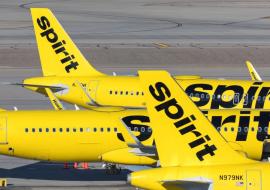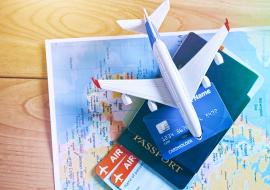Regional airlines LIAT, BWIA agree to merge
Caribbean leaders agreed to forge regional airlines LIAT and BWIA together next June in an effort to make it up for the financial problems that now bug these two carriers.
The decision was approved in a meeting held between Barbados prime minister Owen Arthur and his counterparts Lester Byrd from Antigua and Barbuda, Ralph Gonzalvez from St. Vincent and the Grenadines, and Patrick Manning from Trinidad & Tobago, who weighed an action plan aimed at giving regional aviation one mighty leg up.
Leaders of the Caribbean Community (CARICOM) agreed to keep running at least one shuttle between the southern and northern routes of the region.
Mr. Gonzalvez announced the creation of a technical team with a mission to map out the right blueprint of a one-and-only airline, as well as a number of necessary actions to pull that off in the next two months.
Moreover, the same sources revealed that several regional governments will funnel millions of dollars into LIAT through a bailout package in order to keep their flights safe until the new initiative comes into being.
The package includes monetary installments granted by Antigua and Barbuda, Barbados, Granada, St. Vincent & the Grenadines and Trinidad & Tobago, as well as interest-free loans provided by Eastern Caribbean stockholders with payment terms due up in five years.
According to primer minister Gonsalvez, other members of the Organization of Eastern Caribbean States such as Granada, St. Lucia, Dominique and St. Kitts & Nevis will be invited to be a part of the loan conveniences suggested by Trinidad & Tobago.
On the other hand, a blue-ribbon committee will gather Monday to determine the future of BWIA.
Both air carriers have been bailed out by the government of the so-called twin islands –their headquarters are there- to get by the impact of the U.S. attack against Iraq.
The 9/11 terrorist attacks in Washington and New York and the ongoing conflict in the Middle East have made a dent in traveling worldwide and brought about a dramatic meltdown in plane fares, jobs and wages everywhere.
The economic and financial situation of regional aviation is the most worrisome for CARICOM leaders since this is, for the most part, the number-one source of hard currency money for many of these small-economy islands that usually depend on tourism.














